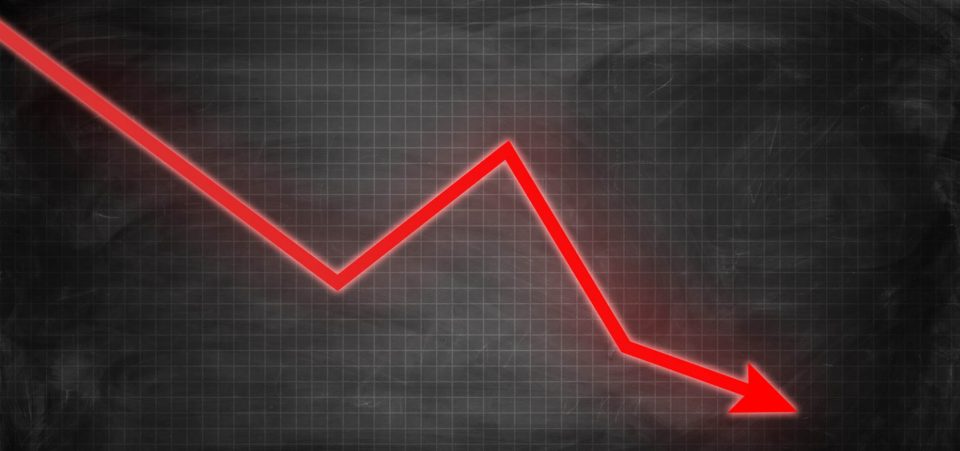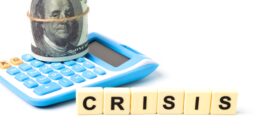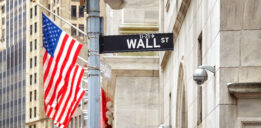The Economic Consequences of a Financial Collapse in 2018
The Bank for International Settlements (BIS), which some might say is the “central bank of central banks,” is just one of several institutions warning once again about the devastating consequences of the current monetary policy. The combination of a red-hot market and a rudderless Federal Reserve could prove deadly. It could lead to many unwelcome consequences, of which a financial collapse in 2018 might be but one—and not even the worst one. The upcoming financial collapse, just as in 1929 and 2008, is carrying all the seeds of a U.S. economic collapse in 2018.
What is worse is that, while major institutions are clearly announcing their doubts, warning the markets, investors are not paying attention. The stock exchanges appear to be competing against each other in levels of confidence. The Dow Jones Industrial Average (DJIA) hasn’t reached 22,000 yet, but that’s where investors feel it should be. Accordingly, the DJIA remains solidly above 21,000. Indeed, on July 26, it set a new record of 21,700 points.
Many investors, those not rich enough to play a more direct role in the hugely expensive stock market (expensive being based on price-to-earnings ratio) have no clue where to go or whom to trust. The central banks and international monetary institutions, and a handful of financial experts have appealed for caution. But investors are feeling bullish. This is odd, since a closer examination of present conditions should have made bears out of most of them.
Janet Yellen is famous as the Chair of the Federal Reserve. She is also famous for saying that there would be no financial crisis “in our lifetime.” Those are the words nobody, least of all the most influential banker in the world, should say. Typically, the next financial collapse always follows such declarations of euphoria.
As it happens, the stock market is flying, but the U.S. dollar is not. Few have noticed. But it won’t be long before Americans will feel the effects when their money buys fewer goods. Retail therapy just became more expensive. Yet, because inflation is officially at a low level, nobody will be in a mood to boost salaries.
The United States will feel a bit more like the European Union (EU) and the euro. The fact that inflation hasn’t increased is all the proof you need that growth has not been what so many optimistic predictions suggested—including those coming straight from the White House. President Donald Trump suggested that the U.S. economy would grow at three percent per year by the end of 2017. Instead, we’re looking at the next financial collapse.
The Federal Reserve Has Not Lost Enthusiasm. But Be Afraid!
Meanwhile, Yellen hasn’t softened her enthusiasm. According to Yellen, we owe it to the “big reforms” in the banking sector, which have made the system more secure since the crash more than 10 years ago, that we will (supposedly) not see a “big crisis” in our lifetime. (Source: “Yellen: Banks ‘very much stronger’; another financial crisis not likely ‘in our lifetime,” CNBC, June 27, 2017.)
You don’t say? Boys and girls, those of you reading this who are in your teens, can look forward to enjoying the next 70 years without a financial crisis! Surely Yellen, who has been an economist for most of her life, can afford to believe this. But these are dangerous suggestions.
It’s almost as if the economic authorities are going out of their way to paint the rosiest possible picture. That way, they figure, people will believe that everything is alright instead of stopping for a moment to consider exactly why Snap Inc (NYSE:SNAP), aka “Snapchat,” was at one point in 2017 valued more than Delta Airlines Inc (BVMF:DEAI34), Southwest Airlines Co (NYSE:LUV), Kellogg Company (NYSE:K), Allstate Corp (NYSE:ALL), eBay Inc (NASDAQ:EBAY), Marriott International Inc (NASDAQ:MAR), Target Corporation (NYSE:TGT), and Hewlett Packard Enterprise Co (NYSE:HPE). (Source: “Snapchat is worth more than Delta, Target and CBS,” CNN Money, March 3, 2017.)
Mind you, Snap Inc stock has already hit reality in the face. It’s now trading at less than half of what it was last March. Still, many run-of-the-mill investors can choose from any number of Snap-like stocks. Thus, it’s no wonder that hardly any media outlet, or media consumer—regardless of age—wants to receive a reality check from the BIS or another reasonable institution. Many stocks would drop, triggering the next financial collapse. Just look at the cyclically-adjusted-price-to-earnings (CAPE) ratios of some stocks. Generally, higher ratios warn of a crash.
The “annoying” BIS has hinted that the global economy is caught in a permanent trap of boom-and-bust financial cycles, and that this “deformed structure” is becoming more and more corrosive and dangerous, since debt levels—and many stock valuations—have risen to dizzying heights.
(Source: “Next global crash could come “with a vengeance”, central bankers have warned,” City A.M., June 27, 2017.)
Indeed, the warnings may come, but the stock exchanges are still flying high. Many stocks are close to record levels. But this euphoria will not continue forever. It can’t. Simply put, Wall Street might be a one-way street, but the markets are not. Much is made about the financial collapse of 2008 as the cause of the strange market behavior.
The Trauma of 2008 and Debt Still Affect Us—and Weaken Us
Certainly, because of the financial collapse of 2008, the markets have reacted as if still in a state of trauma. Thus, the central banks are busy trying to prevent another crash. Though the correction will come crashing down sooner or later, financial expert Jim Rogers, for example, expects a violent crash. In fact, the well-known hedge fund manager and former George Soros employee explained in an interview that he is counting on the biggest financial crash we have ever seen.
Rogers points out that the Dow Jones stock index has risen by more than 60% in the U.S. alone from 2012–2017, fueled by high government debt and low growth rates. The low interest rates of the central banks have led to a market that encourages investors to flee into real estate and stocks until the bubble bursts. As Rogers has observed, the trigger for the next crash could come from an area that nobody has expected, thus it becomes even harder to predict.
At least in 2008, a few observers did manage to predict the source of the crash as coming from toxic debt packaged as high-risk derivatives. Some, like Dr. Michael Burry, were even able to generate profits for themselves and their clients by exploiting those predictions. There are no indications that there will be any “Burrys” in the next financial crash.
Meanwhile, debt at the national and personal level continues to accumulate. Perhaps we can at least predict that too much debt will be at the heart of the crash. It’s not even the United States’ debt that causes the biggest concerns (and it’s at 102% or so). Consider that China’s debt is already more than 250% of its gross domestic product (GDP).
There are few reassuring things to say. The next financial collapse—the conditions for which exist already, but will be even stronger next year—will threaten the entire financial system across the globe. This could lead to the collapse of the global financial system, let alone U.S. economic collapse in 2018 at any time.
The Janet Yellens of the world—and all the central banks—could try to stop the crash, but they would have few chances of succeeding. The overvaluation in equities and related symptoms—such as a renewed housing bubble—have reached a level that cannot be maintained for much longer. Because of the high national debt, states will not be able to prevent the collapse this time.
This is different than what happened after the financial crisis in 2008. After all, interest rates had been much more normal—between five and six percent, on average. Now the developed countries have been running interest rates at close to zero for the past nine years! Resistance is futile, as a popular TV show character recited.
You can do something to hedge your risk. Don’t keep all your eggs in one basket. Diversify your assets in order to leave a “shock absorber,” should a crash occur. By diversified, it is implied that a portfolio of investments might include anything from currencies, stocks (different sectors), and precious metals like gold. Indeed, given the intense political risk, the U.S. dollar could be headed for a wild ride. Currencies should be interesting, but gold might be safer.








